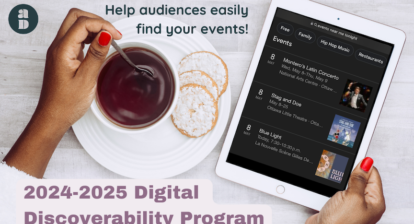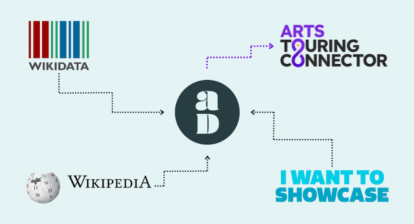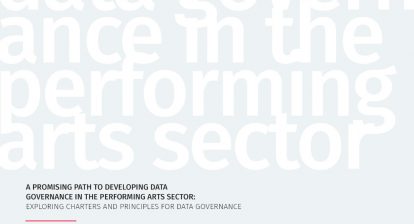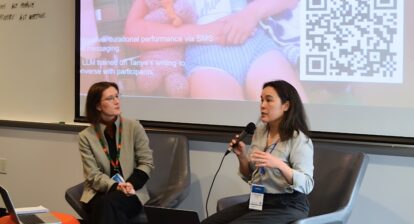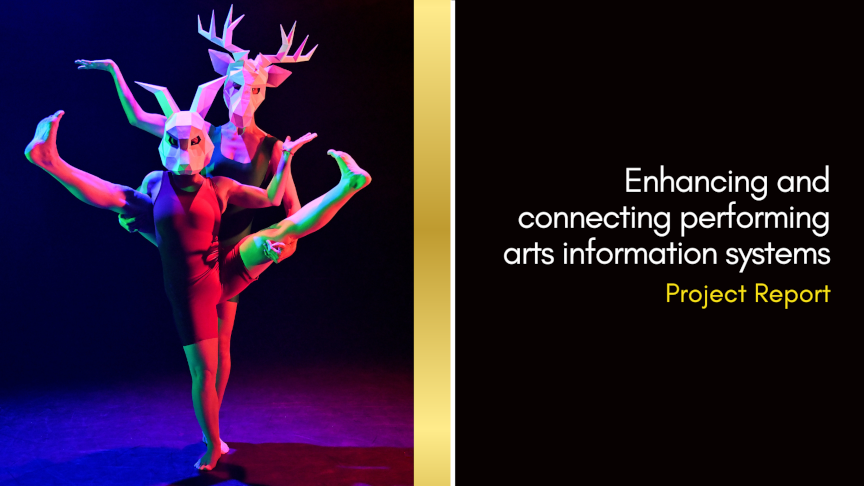
CAPACOA has released an analysis report on information systems for the performing arts industry in Canada. While it marks the conclusion of a project initiated last summer, this report continues the ongoing efforts by CAPACOA and Artsdata partners to promote a data-centric digital transformation focused on open data.
Similar, Yet Different Platforms
Four digital platforms were analyzed during the project: Scènes francophones, Scène Pro (and Référentiel des métadonnées du spectacle), I Want To Showcase and Arts Touring Connector.
While these platforms support different business processes, they collect data about the same fundamental industry concepts: artists, shows, presenters, venues, and performances.
However, the analysis revealed a high level of heterogeneity in the structure of the data collected by these platforms. They notably have few common attributes, which limits interoperability between systems and hinders data flow among them.
Advocating for More Accurate Artist Identification
Among its numerous recommendations, the report suggests associating more accurate entity types with artist profiles:
- Solo Artist (i.e., an individual person);
- Group or Collective (e.g., a duo or music group);
- Organization (e.g., a theater or dance company).
This could enable finer collection of self-identification information (subject to user consent), aiming for equity, diversity, and inclusion. A more accurate classification of artists is also deemed a prerequisite for the attribution of persistent identifiers. The report states that persistent identifiers are key to facilitating data flow between platforms.
Consensus for Open Data
The platform managers involved in the project all received an analysis report containing recommendations to improve the quality of performing arts data and enable their reuse. These recommendations were well-received by platform managers and have sparked a movement towards open data:
- Scènes francophones has implemented an open data policy (politique de données ouvertes) and already provides all its data to the Artsdata knowledge graph;
- Scène Pro provides data on presenters and venues to Artsdata;
- I Want To Showcase has begun work to enable sharing of its artists data;
- Discussions are underway to interconnect Arts Touring Connector and Artsdata, allowing open data to flow freely in both directions.
Could it be that the performing arts sector has reached a tipping point where open data becomes the norm rather than the exception? This is CAPACOA’s hope.
Acknowledgements
This project was carried out by CAPACOA with support from Synapse C, Anicet Lepetit Ondo, and Gregory Saumier-Finch, under the direction of Frédéric Julien (CAPACOA).
We thank the platform managers of the project’s partner platforms: RADARTS, l’Association RIDEAU, Organization of Saskatchewan Arts Councils, and Ontario Presents.
This project was funded by the Government of Canada’s Community Services Recovery Fund. This fund is a one-time investment of $400 million to help community organizations, including charities, non-profit organizations and Indigenous governing bodies, as they adapt and modernize their organizations.
Related Content
Strengthening and Linking Performing Arts Information Systems: Project Report
Linking your Data – Outreach Toolkit and Consent Guideline for Membership Based Arts Organizations
Recommendations Regarding Persistent Identifiers in the Performing Arts




